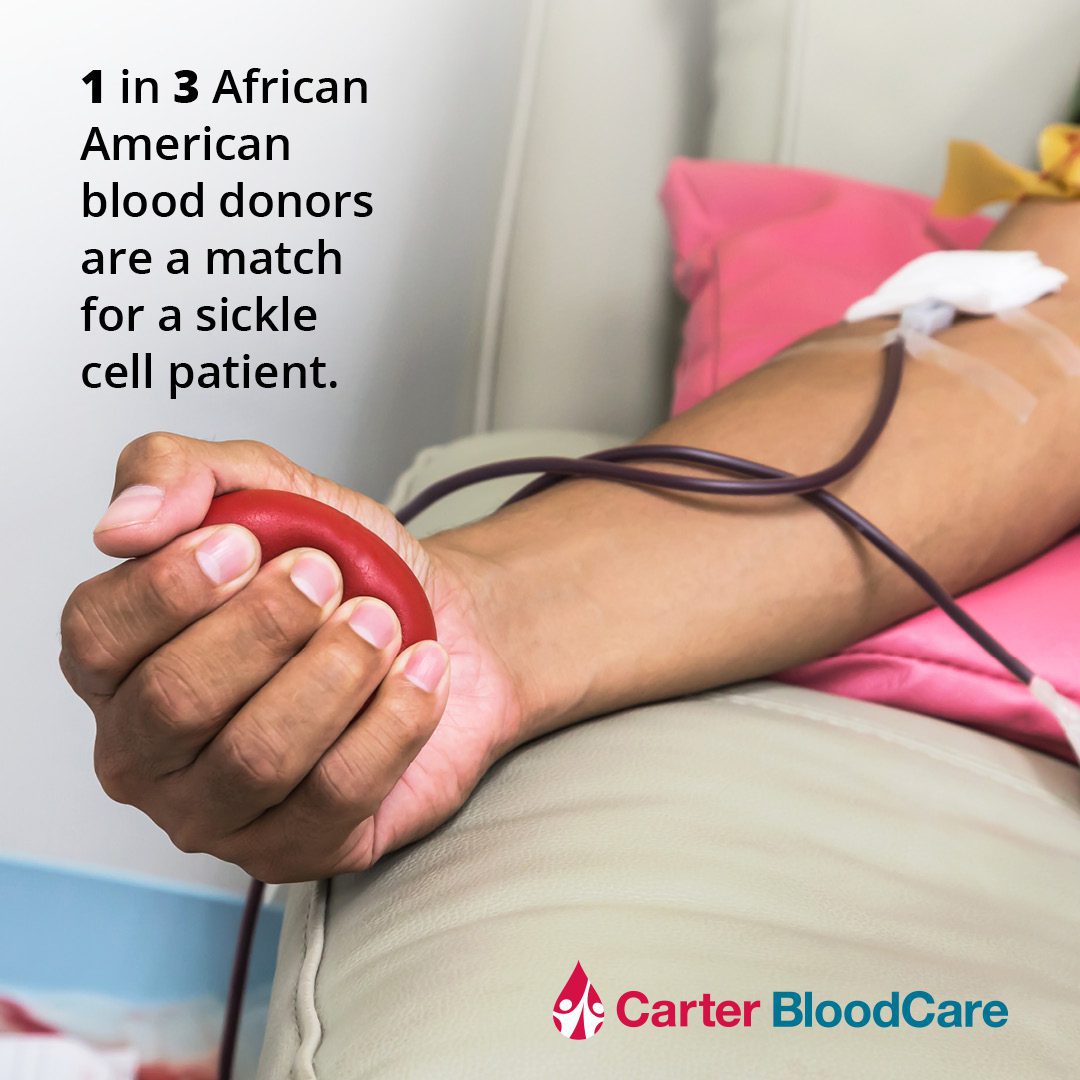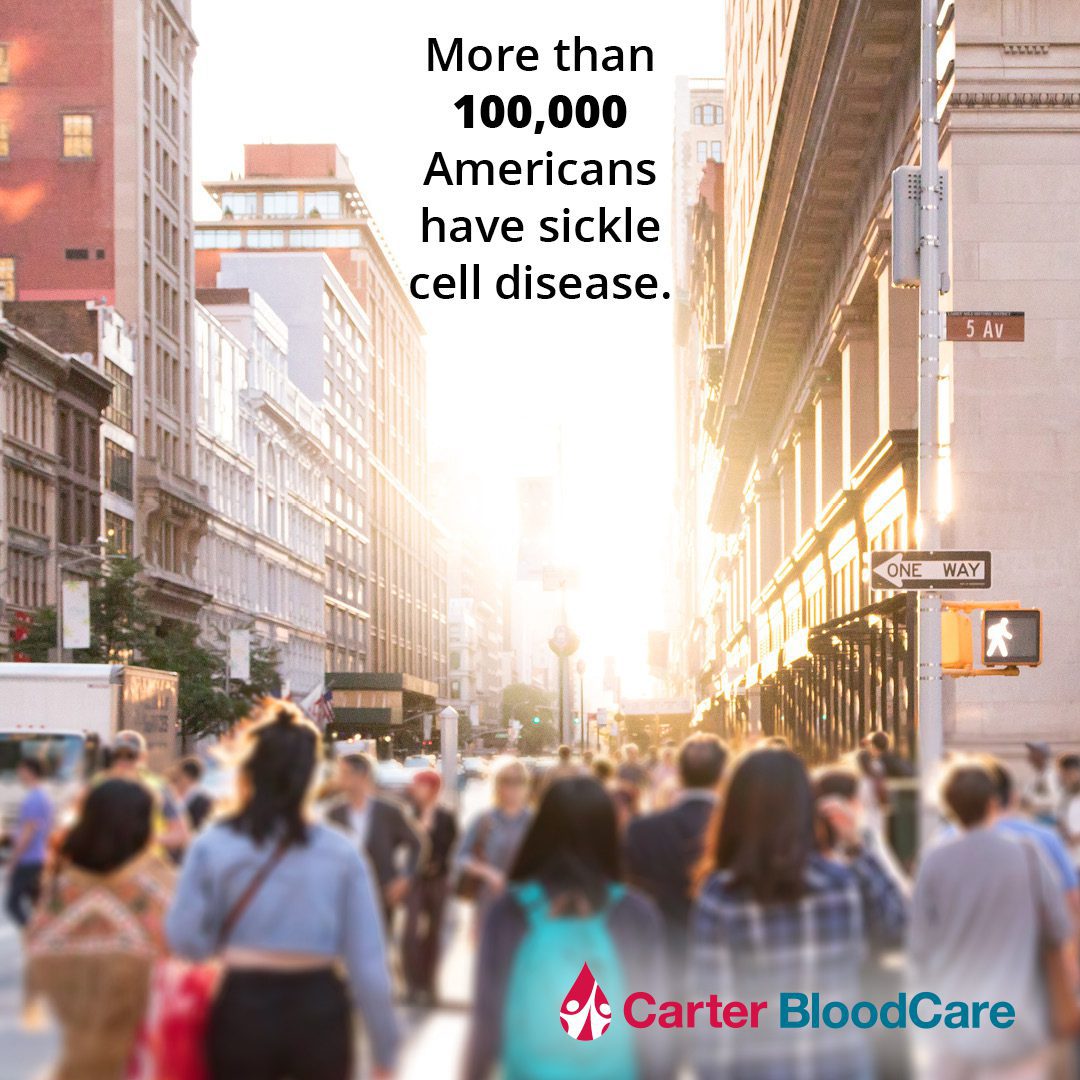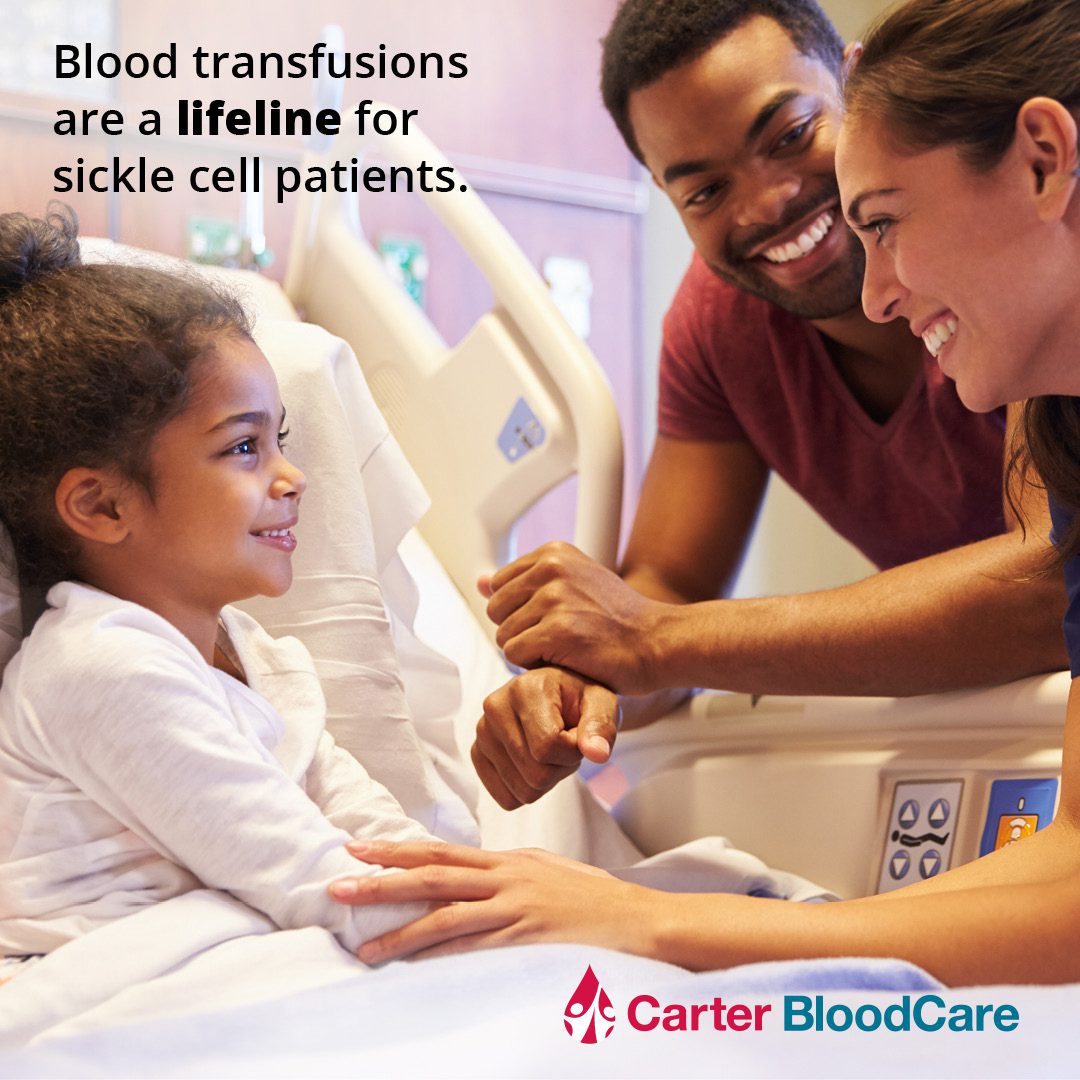Sickle Cell Disease (SCD)
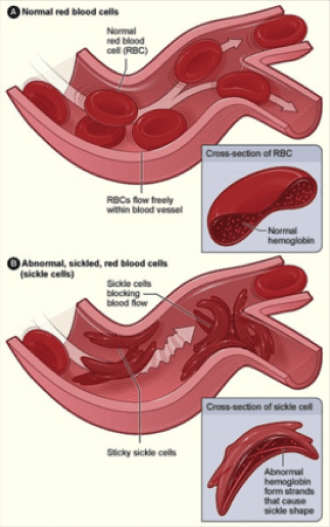
What is the link between donor diversity and safe, compatible blood transfusions?
Transfusion support for patients with sickle cell disease (SCD) is central to understanding this link. SCD is an inherited blood disorder affecting the red blood cells.
Patients with SCD can require monthly blood transfusions for life, beginning in childhood. Each transfusion could require one to 10 units of red blood cells, depending on the patient’s age and size. Ideally, the blood is less than seven days old to maximize the lifespan of the healthy red cells. Most SCD patients in the U.S. are Black/African American, but the disease also occurs in people of Latin American, Mediterranean and Middle Eastern heritage, too.
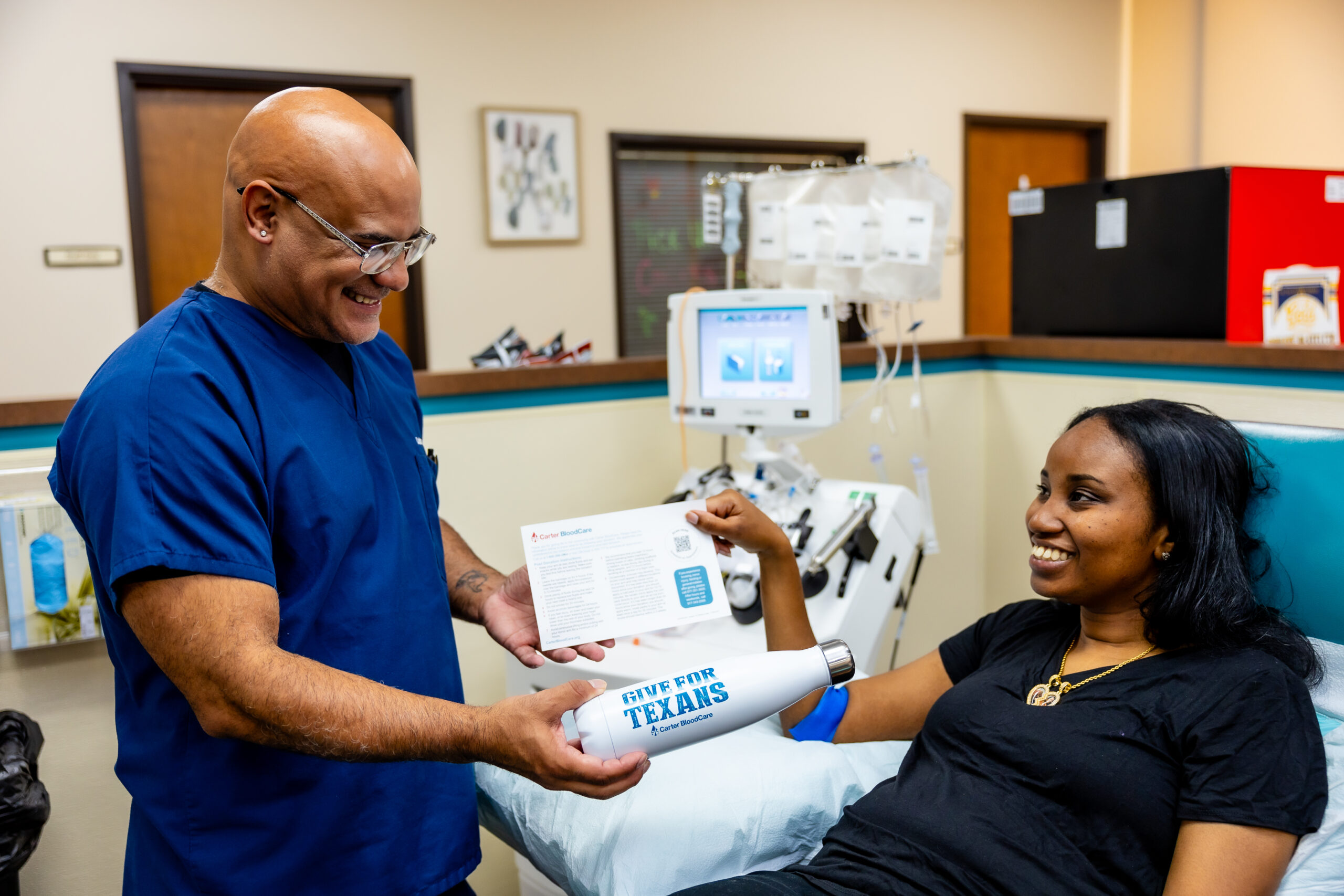
Compatible blood for SCD patient support is much more likely found among blood donors who share their race or ethnicity. It is essential that Black/African American donors are well represented among the volunteer donors with Carter BloodCare, if SCD patients and their physicians can be confident there will be compatible blood available for them.
Testing blood beyond groups A, B and O
Medical Director Dr. William Crews explains there are more blood groups than just A, B and O types. Among additional subgroups is where blood centers find the most compatible match for SCD patients and others requiring a complex match.
Importance of R0 to people with sickle cell disease
R0 donors are in demand to help patients living with sickle cell disease, an inherited blood disorder that causes distorted, sickle-shaped red cells. These blood cells cannot properly transport oxygen throughout the body, which can cause anemia.
About 100,000 Americans have sickle cell disease (SCD). Black/African American people make up 90% of the U.S. population with SCD; people of Hispanic, South Asian, Southern European and Middle Eastern ancestry are also impacted by SCD.



